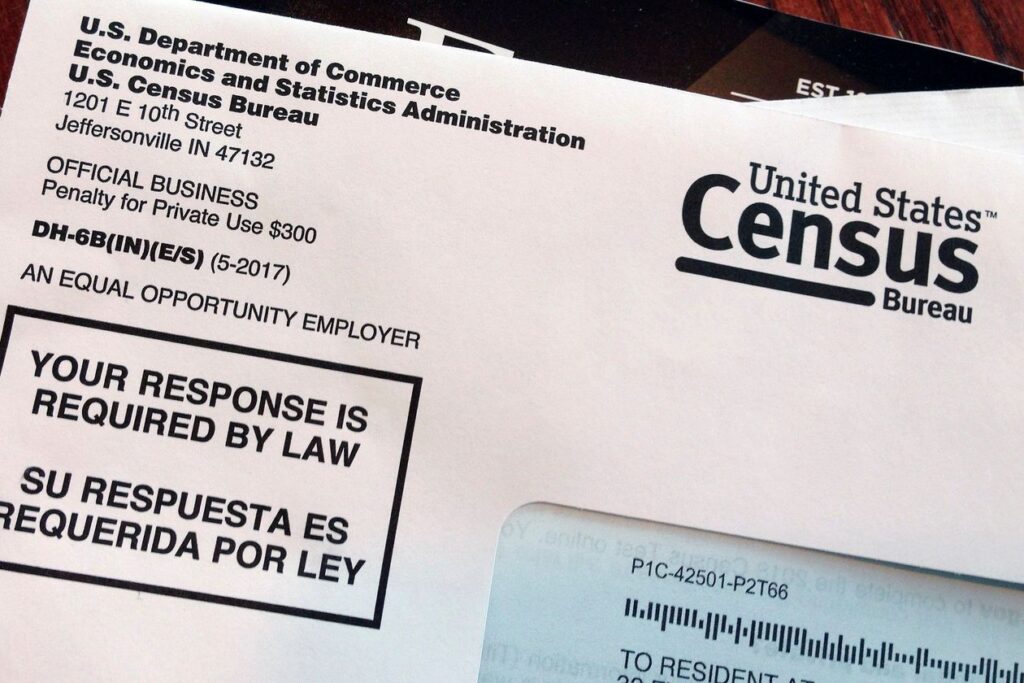Don’t blame mail ballots for losing Space Command | Jimmy Sengenberger
President Trump’s decision to uproot Space Command from Peterson Space Force Base in Colorado Springs and move it to Redstone Arsenal in Huntsville, Alabama rocked Colorado. Trump had a legitimate basis, but by dragging in mail ballots, he muddied the waters and made a defensible case seem political.
With escalating threats from China, Russia and North Korea, disrupting national security is risky. That’s why Colorado’s entire congressional delegation signed a bipartisan letter warning that the move — which affects 1,700 active-duty service members and 1,000 civilian employees — could impact the workforce in a way that “will take our national defense systems decades to recreate.”
“Moving Space Command sets our space defense apparatus back years, wastes billions of taxpayer dollars, and hands the advantage to the converging threats of China, Russia, Iran, and North Korea,” they wrote. “The Department of Defense Inspector General’s office has reported multiple times that moving the Command will impede our military’s operational capability for years.”
The biggest argument for Colorado, according to former Cold War-era military intelligence contractor Keith Nobles, is that Space Command is already here. Our military infrastructure depends on that consistency. “Moving is an additional expense and disruption to a very vital segment of our defense,” he said.
Democratic Attorney General Phil Weiser has pledged to challenge the move in court, calling it “unlawful” and “play(ing) political games” with the military. But his planned lawsuit doesn’t have a legal leg to stand on. That’s because the public record tells a different story.
In The Wall Street Journal, Alabama Senator Katie Britt laid out the timeline: After announcing six candidate cities in November 2020, the Air Force ranked Huntsville #1 in January 2021. Both Trump’s and Biden’s Air Force secretaries recommended Alabama, but Biden kept it in Colorado Springs, redesignating Peterson as headquarters in July 2023 despite the Air Force ranking Peterson #4.
“Mr. Biden ignored the two separate investigations in 2022, by the U.S. Government Accountability Office and the Pentagon’s Office of the Inspector General, that clarified the Air Force’s selection of Alabama was made purely on the merits,” Britt wrote.
Follow-up reports from both “reaffirmed Alabama as the top choice,” with a May 2025 GAO report concluding Colorado Springs isn’t “sustainable long term” and “new military construction would be needed to support the headquarters’ operations.”
Colorado is an extremely expensive place to live, and the state ranks in the bottom for public safety and infrastructure. State leaders haven’t helped by antagonizing Trump at every turn.
Again, Space Command should remain in Colorado Springs. Peterson achieved “full operational capacity” by the end of 2023, making this move unnecessarily disruptive.
But let’s be honest: This decision was a long time coming. Trump called it “seven years in the making,” and the narrative that this is pure political spite ignores the public record. Both Trump’s and Joe Biden’s Air Force secretaries recommended Alabama, but Biden spent 2.5 years slow walking a reversal that contradicted his own military’s recommendations. It felt political.
Yet Trump sabotaged his own credibility when he rekindled election grievances by calling Colorado’s universal mail ballot system “a big factor.” After boasting he “won Alabama by only 47 points,” he joked, “I don’t think that influenced my decision” — while making politics central to his pitch.
“The problem I have with Colorado — one of the big problems — they do mail-in voting. They went to all mail-in voting, so they have automatically crooked elections,” Trump said. “When a state is for mail-in voting, that means they want dishonest elections.”
Colorado’s vote-by-mail system has been in place since 2013, when over 70% of voters already requested no-excuse absentee ballots. Most ballots aren’t even mailed back — over two-thirds of voters use secure drop boxes.
BallotTrax informs voters when their ballot is received and counted. That’s how Mesa County discovered a dozen fraudulent ballots last year, leading to criminal prosecutions. Every election undergoes robust post-election audits alongside signature verification audits.
Coloradans vote exclusively on paper ballots, which are then counted and reviewed by human election judges using electronic tabulators. Any county can hand recount to cross-check the physical ballots against the results. (Former Mesa County Clerk Tina Peters could have done this after 2020, but she refused — instead perpetrating an election security breach that landed her nine years behind bars.)
Reforms like photo ID are necessary, but our system is far more secure than the hand-counted paper ballots Trump has floated. America largely abandoned hand counts starting in the late 1800s. For most of our history, voter fraud ruled the day — think political machines like Tammany Hall in New York or Cook County in Chicago — but today’s system is dramatically better.
On Facebook, former Republican Douglas County Clerk Merlin Klotz called single-day paper ballot voting “impractical and unsafe.” Hand-counting is less accurate, he noted, and DougCo’s “80 contests in more than 300 ballot styles” would require an “insane” number of counters and generate massive lines. While acknowledging “curable risks,” Klotz rightly calls Colorado’s system “superior to that in many other states.”
Which is why Trump’s claims about “crooked elections” are so disappointing. Moving Space Command is the wrong call, but at least it’s defensible. Unfortunately, he couldn’t resist relitigating “Stop the Steal,” making a legitimate military-based decision look like political payback — all while national security and 2,700 Colorado jobs hang in the balance.
Jimmy Sengenberger is an investigative journalist, public speaker, and longtime local talk-radio host. Reach Jimmy online at Jimmysengenberger.com or on X (formerly Twitter) @SengCenter.
Jimmy Sengenberger is an investigative journalist, public speaker, and longtime local talk-radio host. Reach Jimmy online at Jimmysengenberger.com or on X (formerly Twitter) @SengCenter.



















